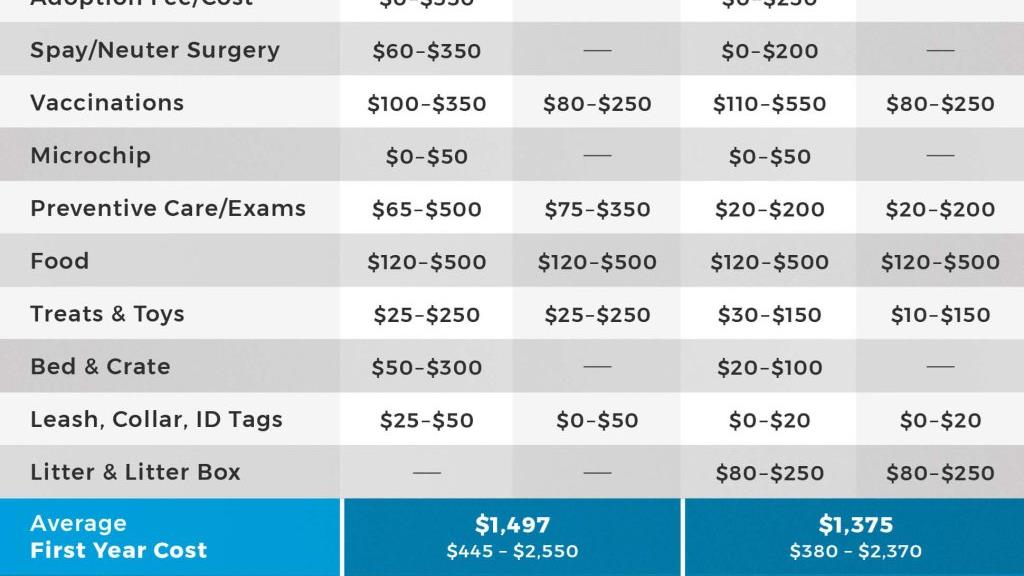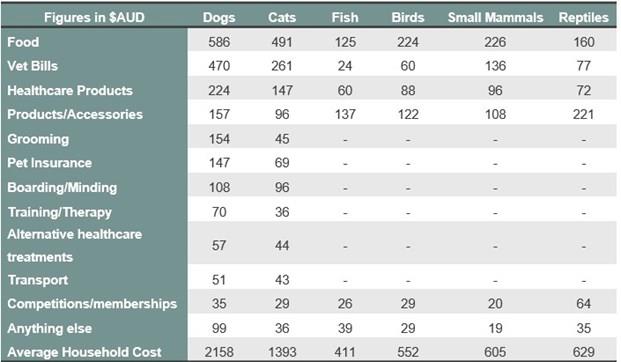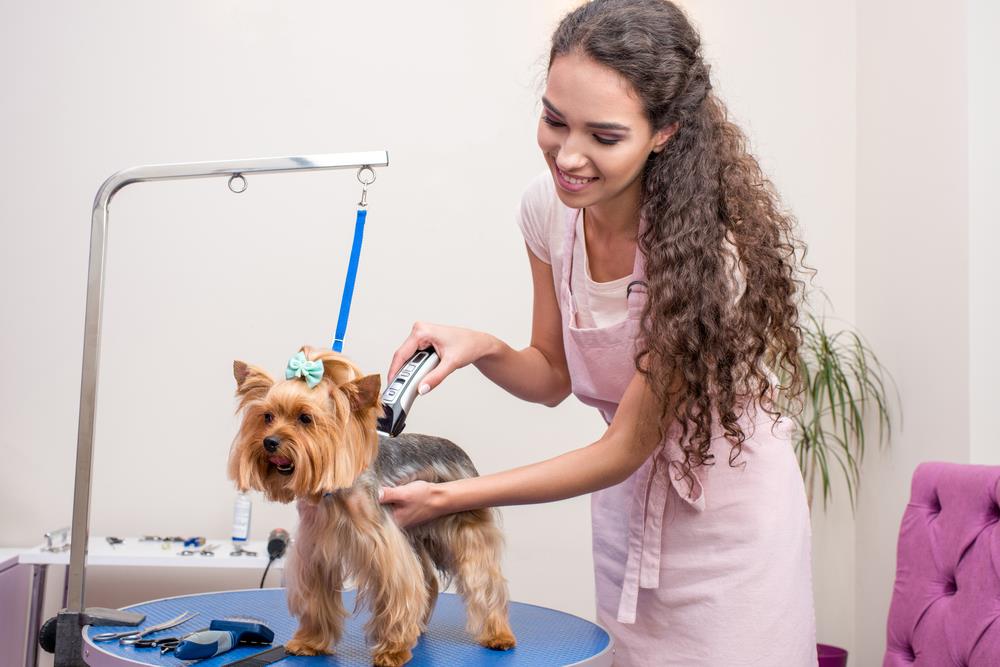Understanding the Basics of Pet Ownership Costs
The journey of pet ownership is rewarding yet entails significant financial responsibilities. It’s crucial to comprehend these aspects to ensure your pet’s welfare and avoid unexpected financial strain.
The initial costs of owning a pet include adoption or purchase fees, vaccinations, microchipping, and neutering. Monthly expenses encompass food, pet insurance, grooming, and preventative healthcare. Unexpected costs might arise from emergency vet visits or behavioural training.
Moreover, the type, breed, and size of the pet significantly affect these costs. For instance, a larger breed dog will consume more food, translating to higher monthly expenses. Certain breeds might also require specific, potentially costly, healthcare.

By comprehending these costs, you can ensure your pet receives the best care while managing your budget effectively.
Managing Pet Care Costs: Tips and Tricks
Stay tuned for practical advice on budgeting for pet ownership costs and strategies to handle unexpected expenses.
The Importance of Planning for Pet Care Costs
When considering pet ownership, a crucial aspect often overlooked is the financial responsibility it entails. It’s not just about the initial cost of adopting your furry friend, but also about the ongoing expenses like food, grooming, routine vet checks, and unexpected medical costs.

The Role of Budgeting in Managing Pet Care Expenses
Budgeting plays an essential role in managing pet care expenses. It provides a clear picture of the costs involved, helping you ensure that your pet’s needs are met without causing financial strain.
The Necessity of an Emergency Fund for Unexpected Pet Care Costs
Just like humans, pets can also face unexpected health issues that require immediate attention. An emergency fund for pet care can be a lifesaver in such situations, allowing you to focus on your pet’s well-being without worrying about the cost.
The Potential Financial Risks of Unplanned Pet Ownership
Unplanned pet ownership can lead to substantial financial risks. From unexpected veterinary costs to the daily expenses of pet care, the financial burden can quickly become overwhelming without proper planning and budgeting. Therefore, understanding and planning for pet care costs are crucial for responsible pet ownership.
How to Save on Initial Pet Ownership Costs
When considering pet ownership, an effective way to manage costs is by choosing adoption over purchasing from breeders or pet shops. Animal shelters often charge a fraction of the price, and the fee usually includes initial veterinary checks and vaccinations.
Initial pet supplies, such as food, bedding, and toys, can add up. To keep costs low, consider buying in bulk from discount retailers or online pet supply stores. Additionally, sourcing second-hand items from local markets or online platforms can lead to substantial savings.
The Value of Early Pet Health Check-ups
Investing in an early health check-up for your pet can potentially save you from high veterinary costs down the line. Regular preventative healthcare can spot issues before they become serious and expensive. Not only does this approach save money, but it also helps ensure your pet’s long-term health and happiness.
Affordable, Nutritious Pet Food and Treats
Choosing the right food for your pet can significantly impact their health and your budget. Opt for high-quality, RSPCA-approved generic brands that offer balanced nutrition. Homemade treats, prepared from fresh ingredients, can also be a cost-effective and healthy option.

Reducing Grooming Costs
Regular grooming is essential for your pet’s health but can be expensive. Consider learning basic grooming techniques such as brushing and nail trimming at home. PDSA offers excellent tips on DIY pet grooming.

At-Home Pet Care versus Professional Services
While professional pet care services offer convenience, at-home care can significantly reduce costs. It offers the added benefit of strengthening the bond between you and your pet. However, ensure you are well-informed about pet care needs. Resources like Australian government’s animal welfare laws can guide you.

Managing Veterinary and Health Care Costs
Regular vet check-ups and vaccinations are essential parts of maintaining your pet’s health. These routine visits can catch potential health issues early, which can mitigate treatment costs in the long run.
Understanding Pet Insurance
Pet insurance is a valuable tool to manage unexpected health care costs. It’s important to understand the benefits, costs, and coverage of different pet insurance policies.
Ways to Save on Medication
Opting for generic drugs can significantly reduce medication costs. Additionally, purchasing pet medications online can often be cheaper than buying from a traditional vet clinic.

Handling Unexpected Pet Care Costs
As a pet owner, it’s crucial to be prepared for unexpected costs that may arise due to accidents, illnesses, or ageing-related conditions. These unexpected pet care costs can significantly impact your finances, especially if you’re not adequately prepared.

Establishing an emergency fund
An emergency fund is a practical step towards managing these unforeseen expenses. It will provide a financial cushion that can cover large vet bills, helping to protect you from financial stress.
Financial Aid for Large Vet Bills
When facing a hefty vet bill, it’s crucial to know your options for assistance. Some charities provide financial aid for pet owners who cannot afford necessary veterinary care, such as the Pet Medical Crisis Fund. In addition, insurance companies offer pet insurance policies that can help cover the cost of unexpected pet care. It’s worth exploring these options to ensure you can provide your pet with the best care possible, without breaking the bank.
Investing in Pet Training and Behaviour Management
Investing in pet training and behaviour management is a strategic choice that pays off in the long run. Not only does it foster a harmonious relationship between you and your pet, but it also prevents costly problems down the line. According to the RSPCA, behaviour problems are a significant factor in pet relinquishment. By investing in training, you can potentially save hundreds, if not thousands, of dollars in damage repair and veterinary bills triggered by behavioural issues.
DIY Training vs. Professional Services
When considering DIY training versus hiring a professional, examine your pet’s specific needs and your own capabilities. Rely on credible sources such as The Pet Professional Guild if you decide to handle training yourself. Remember, consulting with a professional can provide tailored solutions and save you time and frustration.
Managing the Costs of Pet Behaviour Issues
Unexpected costs related to pet behaviour issues can be daunting. From damaged furniture to noise complaints, these costs add up. Investing in preventive measures like pet-friendly home design and soundproofing can go a long way. Further, consider pet insurance to cover potential veterinary costs related to behavioural issues.
Final Thoughts: Balancing Cost Management with Quality Pet Care
In embarking on the joyful journey of pet ownership, planning and budgeting for pet care costs are crucial. Ensuring that you can provide the necessary care for your pet’s health and well-being should take precedence over cost-cutting measures.
While it is understandable to look for ways to manage expenses, remember that your pet’s life and happiness are in your hands. Prioritising their health means not compromising on quality pet care. Consider creating a budget that allocates enough for unexpected health issues, regular check-ups, quality food, and preventive care.
Responsible pet ownership might come with significant costs, but it also brings immense fulfillment. The companionship, love, and joy that pets bring to our lives are priceless.
So, embrace the responsibility, savour the rewards, and remember, providing the best care for your pet is invaluable.



